42 what are natural flavors on food labels
Natural Flavors on Meat and Poultry Labels | Food Safety and Inspection ... Spices (e.g., black pepper, basil, and ginger), spice extracts, essential oils, oleoresins, onion powder, garlic powder, celery powder, onion juice, and garlic juice are all ingredients that may be declared on labeling as "natural flavor," "flavor," or "flavoring." The "Natural" vs. "Natural Flavors" Conflict in Food Labeling: A ... In reality, "natural flavors" are a far cry from what consumers might expect, as they can contain both artificial and synthetic chemicals (often used as processing aids). Nonetheless, without a legally binding Natural regulation, there has been little opportunity to contest the naturalness of natural flavors in the past.
Natural Flavors on Meat and Poultry Labels | Food Safety and Inspection ... The rule did the following: Defined the ingredients, i.e., spices, spice extractives, and essential oils, that may be declared as "natural flavors" or "flavors" on meat and poultry labels. Required more specific listing of certain ingredients. Substances such as dried beef stock, autolyzed yeast, and hydrolyzed proteins must be listed on the ...

What are natural flavors on food labels
What Are Natural Flavors? The Truth Behind What You See On ... - Healthyway "According to the Food and Drug Administration (FDA), natural flavoring can come from an altered version (or versions) of a spice, fruit, fruit juice, vegetable, vegetable juice, edible yeast, herb, bark, root, bud, root, leaf, or plant material, as well as meat, seafood, poultry, eggs, or dairy," says White. What are natural flavors, really? | CNN In the Environmental Working Group 's Food Scores database of over 80,000 foods, "natural flavor" is the fourth most common ingredient listed on labels. The only ingredients that outrank... The 411 on "Natural Flavors" on Your Food Labels - Owyn The answer is no. Many scientists have mentioned that natural flavors and artificial flavors have a significant difference, which is that artificial flavors are chemically altered in a lab while natural flavors are naturally grown. The main motive for using the term "natural" as opposed to "artificial" simply comes down to the fact that ...
What are natural flavors on food labels. Natural Flavors: The Ultimate Guide To What's Safe More specifically, according to the Food and Drug Administration (FDA): natural flavors (or natural flavorings) are derived from "a spice, fruit or fruit juice, vegetable or vegetable juice, edible yeast, herb, bark, bud, root, leaf or similar plant material, meat, seafood, poultry, eggs, dairy products, or fermentation products" [ * ]. How To Decipher "Natural Flavors" & "Spices" on Food Labels for the Low ... By definition the term natural flavors is a bit ambiguous and may possibly include a high FODMAP fruit or juice, garlic powder, onion powder, inulin or chicory root. Based on multiple conversations with food manufacturers garlic and onion are often hidden under natural flavors in processed meats, broths, and other savory foods. Beware the "natural flavors" label - they aren't what you think! Those natural flavors include: Diacetyl - Diacetyl has an intense buttery flavor and is commonly used for dairy flavoring. Studies have shown that diacetyl is linked to "popcorn lung," a condition often seen among workers in microwave popcorn factories. The condition compromises lung function and causes breathing difficulties. What does 'natural flavors' really mean? - The Washington Post The FDA defines a natural flavor as a substance extracted, distilled or similarly derived from plant or animal matter, either as is or after it has been roasted, heated or fermented, and whose...
What Every Consumer Should Know About Foods and Flavors If the maple flavor comes from a natural maple flavor, you may see "natural maple flavor" or "natural flavor" in the ingredient list. If you want a product made or flavored with the... A Look Into Food and Beverage Flavor Labeling the term "natural flavor" refers to, "the essential oil, oleoresin, essence or extractive, protein hydrolysate, distillate, or any product of roasting, heating or enzymolysis, which contains the flavoring constituents derived from a spice, fruit or fruit juice, vegetable or vegetable juice, edible yeast, herb, bark, bud, root, leaf or similar … Everything You Need to Know About Natural Flavors - Food Revolution Network the official fda definition of a natural flavor is "the essential oil, oleoresin, essence or extractive, protein hydrolysate, distillate, or any product of roasting, heating, or enzymolysis, which contains the flavoring constituents derived from a spice, fruit, or fruit juice, vegetable or vegetable juice, edible yeast, herb, bark, bud, root, … Navigating Natural Flavor Regulations - Sigma-Aldrich US Natural Flavors. Natural flavors are defined in the United States under regulation 21 CFR 101.22. The key definitions in this regulation are "The term natural flavor or natural flavoring means … any product of … plant material, meat, …, eggs, dairy products, or fermentation products thereof, whose significant function in food is flavoring…."
CFR - Code of Federal Regulations Title 21 - Food and Drug Administration The information on this page is current as of Mar 29, 2022. For the most up-to-date version of CFR Title 21, go to the Electronic Code of Federal Regulations (eCFR). Sec. 101.22 Foods; labeling of spices, flavorings, colorings and chemical preservatives. (a) (1) The term artificial flavor or artificial flavoring means any substance, the ... What Does "Natural Flavors" Mean on the Ingredient List? The generic moniker "natural flavors" may also mask allergens beyond those that have to be displayed on a label (milk, soy, tree nuts, etc.) Those with allergies to eggs, certain fruits, or other less common items should exercise caution. Natural vs. Artificial Flavor. There's a fine line between natural and artificial flavoring. What are Natural Flavors? Get the FACTS! - Real Mom Nutrition What Are "Natural Flavors"? Natural flavors are derived from plants or animals. According to the International Food and Information Council, if a food's flavoring contains any of the following, it is considered "natural": spice. fruit or fruit juice. vegetable or vegetable juice. edible yeast. What does natural flavoring mean on a label? - USDA Jul 17, 2019 Knowledge Article Spices (e.g., black pepper, basil, and ginger), spice extracts, essential oils, oleoresins, onion powder, garlic powder, celery powder, onion juice, and garlic juice are all ingredients that may be declared on labeling as "natural flavor," "flavor," or "flavoring."
Natural Flavoring Use in a Clean Label World Natural Flavoring Use in a Clean Label World. Flavor is the primary driver of consumer acceptance and repeated purchase of foods. Or, as Keith Cadwallader, Ph.D., Dept. of Food Science & Human Nutrition, University of Illinois at Urbana-Champaign, succinctly said: "Flavor rules.". Surprisingly, given such importance, only limited academic research has been focused on flavors.
What Does 'Natural Flavors' Mean on Food Labels? - Better Homes & Gardens The term natural flavor or natural flavoring is defined by the FDA as "a substance extracted, distilled, or similarly derived from natural sources like plants (fruits, herbs, veggies, barks, roots, etc.) or animals (meat, dairy products, eggs, etc.) via a method of heating, with its primary function in food being flavoring not nutritional."
What Are Natural Flavors? - Pure Food Company Reason #1: natural flavors are 90 percent chemicals As you learned above, 80 to 90 percent of the ingredients that make up natural flavors contain chemical solvents and preservatives. These may include the cancer-causing chemical BHA, propylene glycol (found in antifreeze), and GMO corn-, soy-, and dairy-based fillers.
What are Natural Flavors in Foods: Are They Healthy? In other words, natural flavors are created from substances extracted from food sources using chemical processes. The food sources can include: Eggs Spices Root leaves Plant material Fruit (or fruit juice) Meat, poultry, or seafood Vegetables (or vegetable juice) Dairy products (including fermented dairy products)
Are "Natural Flavors" Really Natural? Are They Good for You? - GoodRx According to the FDA, a natural flavoring is an essential oil or extract from a plant or animal source. Natural flavors may come from a variety of sources, including: Spices and herbs Fruit or fruit juice Vegetables or vegetable juice Edible yeast, roots, bark, buds, or similar plant material Meat, seafood, or poultry Eggs Dairy products
AVOID! Toxic "Natural Flavors" - Jane's Healthy Kitchen "the term natural flavor or natural flavoring means the essential oil, oleoresin, essence or extractive, protein hydrolysate, distillate, or any product of roasting, heating or enzymolysis, which contains the flavoring constituents derived from a spice, fruit or fruit juice, vegetable or vegetable juice, edible yeast, herb, bark, bud, root, leaf …
Use of the Term Natural on Food Labeling | FDA The FDA has considered the term "natural" to mean that nothing artificial or synthetic (including all color additives regardless of source) has been included in, or has been added to, a food...
The Bizarre Truth About "Natural Flavors" - Branch Basics In plain English: a "natural flavor" is any type of flavor additive derived or altered from a natural plant or animal substance. Whereas "artificial flavors" are derived from petroleum products. They are both manufactured in labs to produce the same result: a flavor-enhancing additive that makes processed food taste better so we want to ...
What does "natural" really mean on food labels? - CBS News About two-thirds of people surveyed said they believe the term "natural" means that a processed food has no artificial ingredients, pesticides or genetically modified organisms (GMOs). But in...
Natural Flavors: Should You Eat Them? - Healthline According to the Food and Drug Administration (FDA) Code of Federal Regulations, natural flavors are created from substances extracted from these plant or animal sources ( 1 ): spices fruit or...
The 411 on "Natural Flavors" on Your Food Labels - Owyn The answer is no. Many scientists have mentioned that natural flavors and artificial flavors have a significant difference, which is that artificial flavors are chemically altered in a lab while natural flavors are naturally grown. The main motive for using the term "natural" as opposed to "artificial" simply comes down to the fact that ...
What are natural flavors, really? | CNN In the Environmental Working Group 's Food Scores database of over 80,000 foods, "natural flavor" is the fourth most common ingredient listed on labels. The only ingredients that outrank...
What Are Natural Flavors? The Truth Behind What You See On ... - Healthyway "According to the Food and Drug Administration (FDA), natural flavoring can come from an altered version (or versions) of a spice, fruit, fruit juice, vegetable, vegetable juice, edible yeast, herb, bark, root, bud, root, leaf, or plant material, as well as meat, seafood, poultry, eggs, or dairy," says White.

:max_bytes(150000):strip_icc()/cherry-juice_crop-779d815ba5ee484fb502e94e96595689.jpg)


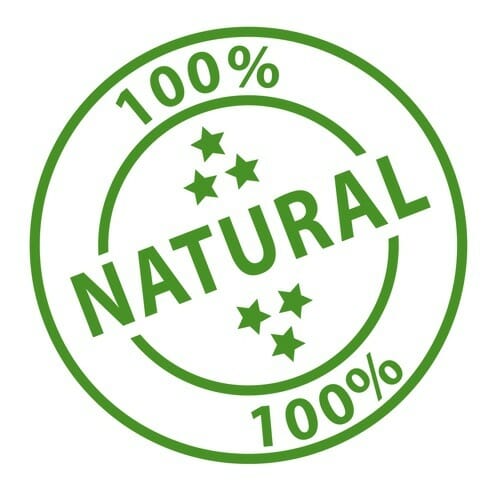
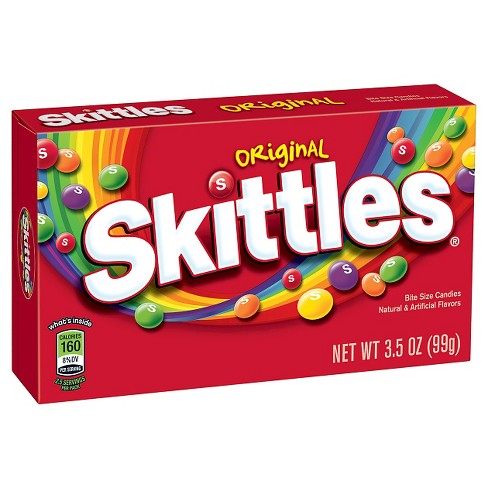
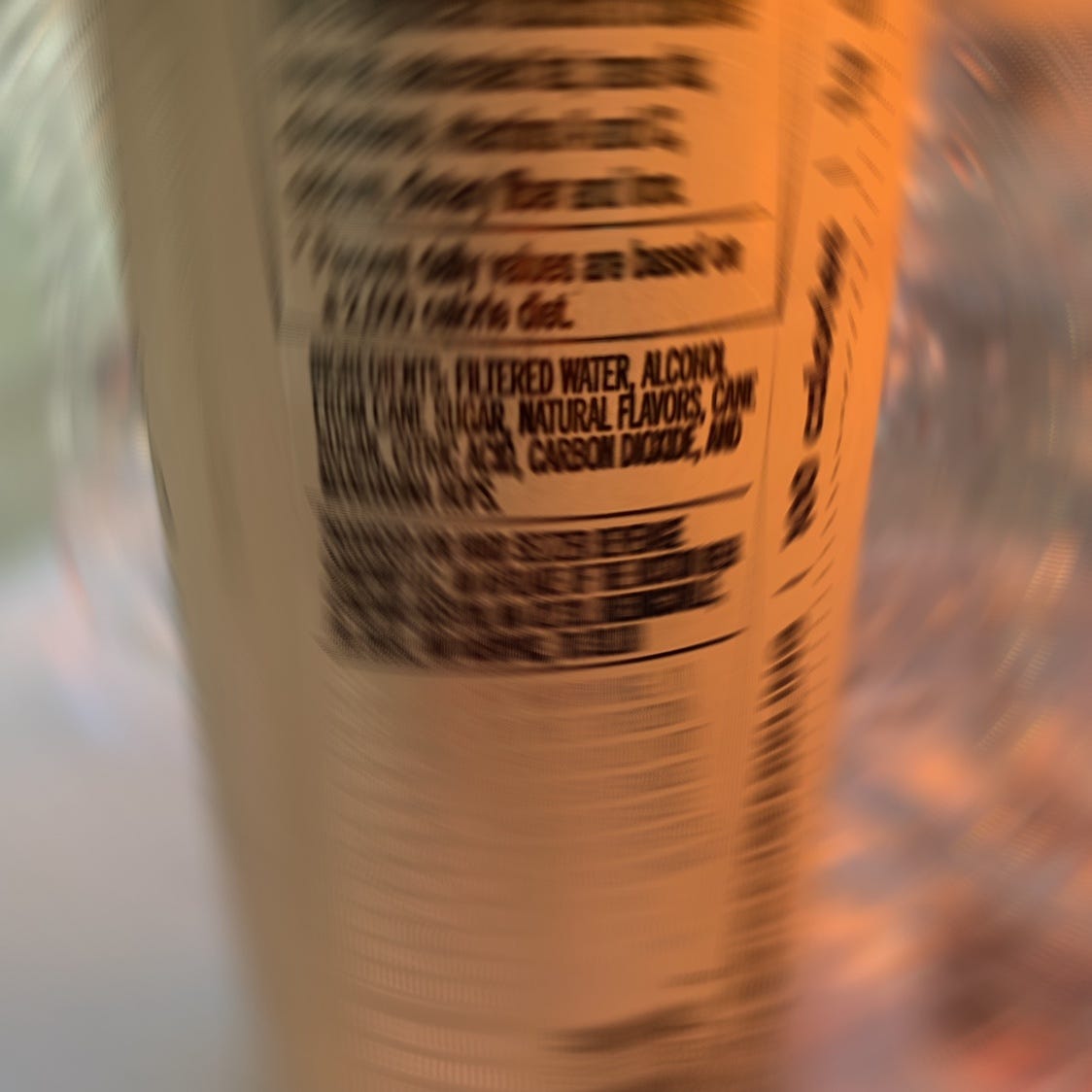







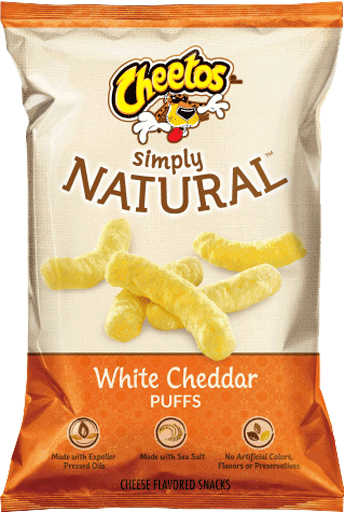









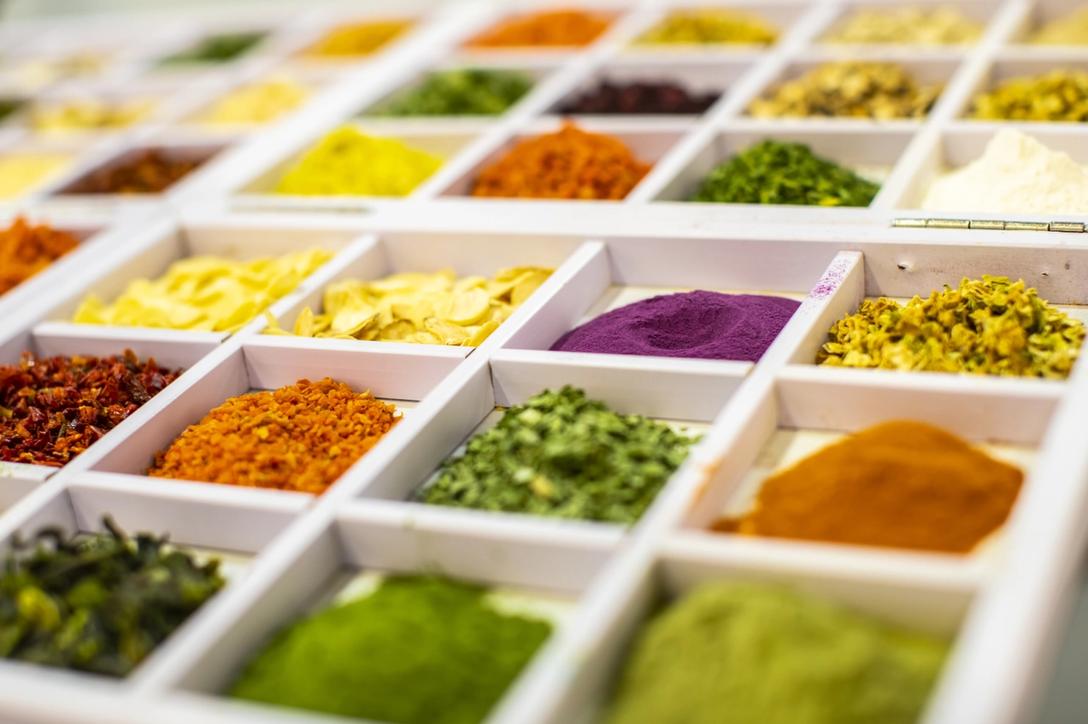

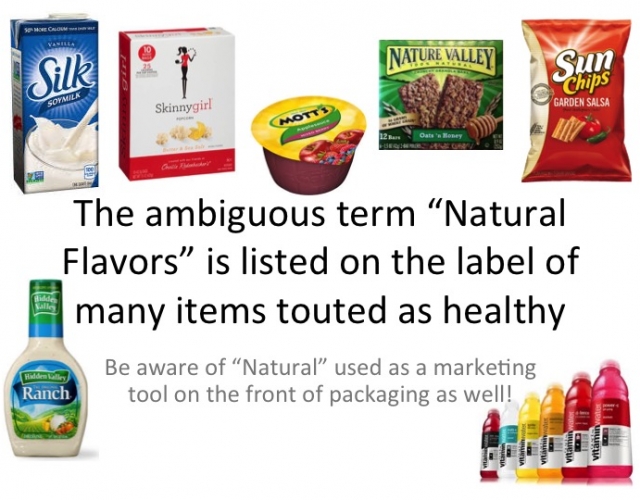


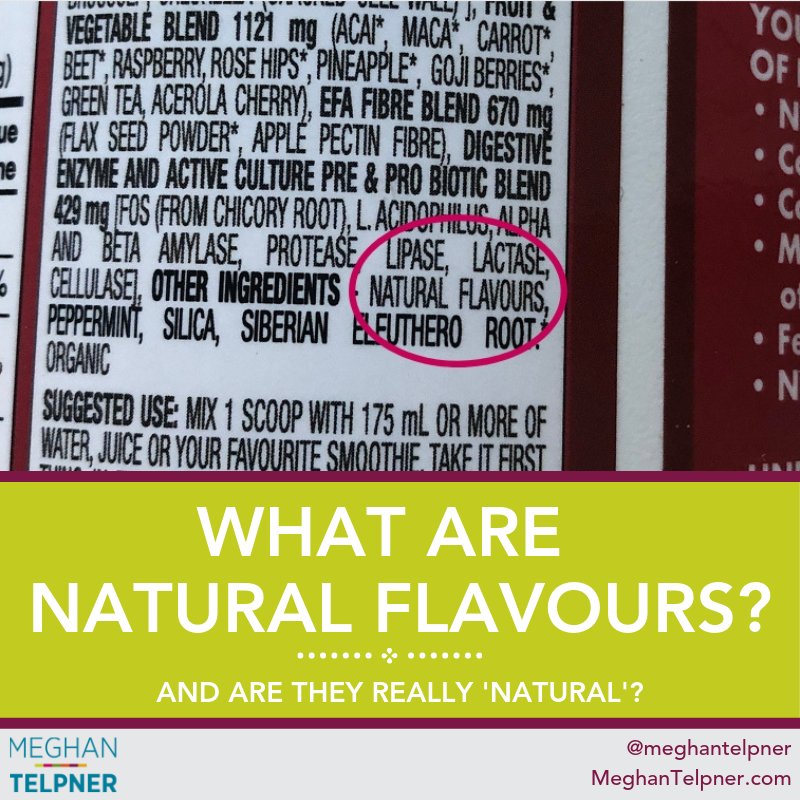
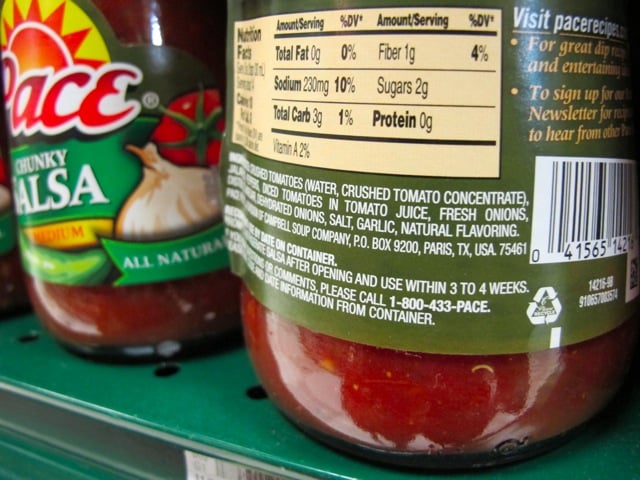


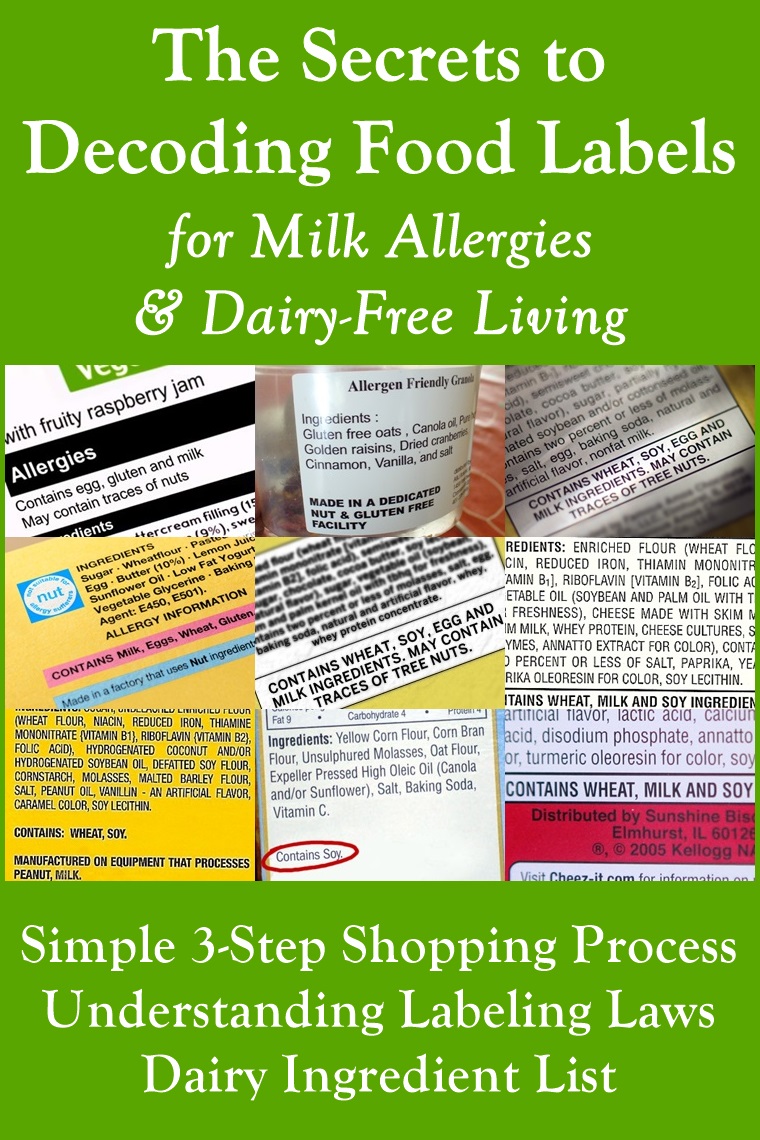




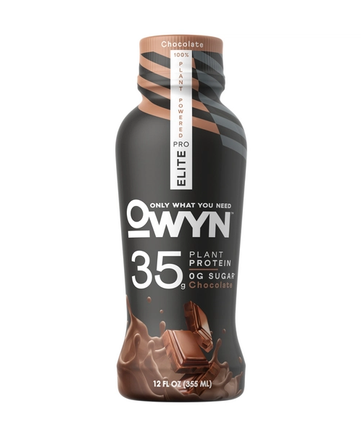
Post a Comment for "42 what are natural flavors on food labels"